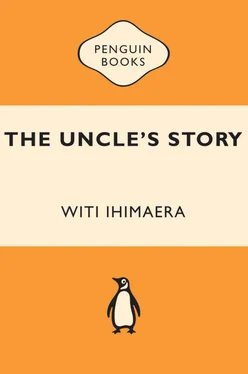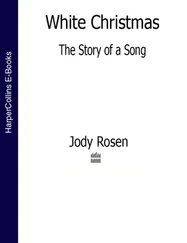‘Well,’ she said, ‘I have news for you, Mister In-Between.’
‘Perhaps things will be different today,’ I said to Roimata, not very hopefully.
We hastened over to the museum, and mingled with the delegates in the foyer again. Such proud people — Inuit, Anishnaabe, Chippewa, Tutchone, Okanagan, Algonquin, Saulteaux, Mohawk, Inuvialuit, Cree, Ojibway, Metis, Cayuga, Teme-Augama, Seneca, Kwakiutl, Inuk, Maliseet, Dogrib, Dakota, Huron — should not be denied their sovereign right to speak out, speak against. Even if it destroyed the orchestrated harmony established by the Council.
Roimata decided we should split for the two plenary sessions on offer. On the way into her session she bumped into Lang, Sterling and Wandisa, who just happened to be standing next to each other again. They took her immediately under their wing.
I hurried to the other session but stopped when I heard a voice calling:
‘Michael, can you spare a moment?’
It was Franklin, looking shy and rather diffident.
‘I know this is short notice, but I wonder if I might ask you to accompany me this evening.’
‘Where to?’
‘The opera. A benefit. Everybody will be there and I am in the VIP party. Unfortunately, I have been let down by my partner —’ Franklin’s eyes flickered. ‘The opera is Richard Wagner’s Tristan and Isolde . But perhaps you’ve got other plans —’
Franklin sounded so sad and disconsolate that I felt I had to accept.
‘I’d be delighted to come with you,’ I answered.
Then it was lunchtime, and Roimata and I met in the cafeteria to exchange notes.
‘Well,’ she said, ‘we hoped that things would get better. Not in my session. The Council is playing the conference very close to its chest. All they want is to be supported in their programmes. They’re good programmes, mind you, but I will not bribed. So what happened at yours?’
‘It’s the same as at home,’ I said. ‘Everybody’s playing Happy Family. Nobody wants to bite on the bullet.’
‘Oh, well,’ Roimata said. ‘Bertram Pine Hawk and his organising committee, they are such dears, but it looks like we’ll have to do our usual Maori thing.’
‘And what’s that?’
‘I’m going back to the hotel to get dressed to kill. You and I will just have to hijack this conference and take it to the place it’s supposed to go.’
‘And where’s that?’ I asked, feeling very afraid.
‘To the cliff and over.’
4
Two hours later, we were on.
The location was the First Peoples’ Hall, and it was crowded. Roimata was looking radiant, but there was a cutting edge to her beauty. She had dressed entirely in black and had placed three white feathers in her hair. I was reminded that her mother was from Taranaki and that, by wearing the feathers, Roimata was acknowledging her ancestral links with Parihaka, the village which had been the great site of resistance during the Land Wars.
I felt a momentary lapse of confidence. In the front seats I saw Bertram Pine Hawk and some of the members of his committee. Lang’s grandfather, Albert Pentecost, was with them also, dignified and compelling in his authority. Further back, I saw Lang himself, Sterling and Wandisa.
‘Are you sure we’re doing the right thing?’ I asked Roimata.
‘Probably not,’ Roimata answered. ‘But we’re not here to be liked. We haven’t come all this way to say things that people expect to hear or because we want them to love us. We have to tell it the way we see it. The way our heart and our history wants us to say it.’
With that, and before we could be introduced, Roimata launched into a strong and passionate karanga. She took three steps forward, raised her hands, and began to call in the direction of the south. She asked the Gods of Maoridom to come to Canada and to help us deliver our korero.
‘Haramai nga Atua o Aotearoa ki tenei powhiri ki a koutou —’
Caught unawares, the delegates quickly took their seats. They heard the blazing passion in Roimata’s voice, the anger and the love. As for me, I had forgotten how powerful the karanga could be. With it, Maori women could say whatever they wished and go wherever they wished. The karanga was their song. It was their voice. It could soothe, it could defy, it could caress, it could kill.
‘E nga taonga, tu mai, tu mai, tu mai —’
Roimata turned to the great houses in the hall and the totems that were standing so tall, holding up the sky. She made our Maori greetings to them. She prayed for their forgiveness should she and I in any way offend them. Then she turned to me and passed the kaupapa, the purpose, from her heart into mine. The ihi, the wehi, the mana rushed into me. And I began:
‘Today Roimata and I are going to commit a crime. The crime is called aroha ki te iwi, love of the people. It is a crime of passion. In the past our ancestors were shot, killed, maimed, murdered and hanged for it. So were yours.
‘We are doing this against the grain of the conference which has looked so positively at all that is being achieved. But we have disliked from the very beginning the implication that the Canada Confederation of the Arts has been responsible for these achievements and should be congratulated. We cannot congratulate the oppressor, no matter how benign they might appear to be. We cannot congratulate a system which calls the shots on what should be funded and how much it should get. The $2 million announced for Indian arts at the beginning of this conference is terrific but we are suspicious of it. It looks like a bribe, it smells like a bribe and if we were you, we would not trust it.’
In the front row, Bertram Pine Hawk was crimsoning with anger. On stage, Roimata was performing the pukana, her fingers quivering in the movement of attack. Elsewhere, there was absolute silence.
‘In this murder, Roimata and I shall be calling in our defence on the burden of history. We wish to plead extenuating circumstances. Our kind has been hunted in Tasmania, moved onto reserve lands in Canada and the United States, assimilated in New Zealand. Although our retaliation is an indictable act, the real criminal, the one who should be in the dock is not us. It is the White man.’
There, it was out. It could not be taken back. The words took physical shape and fluttered on the wings of eagles above the crowd.
‘This is the case that Roimata and I put before you. We have been dispossessed. We have been marginalised. In many places our cultures, yours and mine, have been destroyed. We occupy the borderlands of White society. We live only by the White man’s leave within White structures that are White driven and White kept. Our jailers might be kindly, but they are still our jailers.’
I motioned Roimata forward. Her voice took over.
‘White mainstream policies do not honour the rights of indigenous people,’ she said. ‘The domination of the majority over the minority must be put to an end. This is why Michael and I have committed murder today. Not only that but, from our positions in the dock, we incite you to join us in this act. How can we, as indigenous people, grow under such oppression? We must regain our right to rehabilitate, reconstruct, reaffirm and re-establish our cultures. We must disconnect from the White umbilical.’
Roimata always had a flair for the dramatic. She threw the spear of her korero back to me to carry forward.
‘Our counsel has suggested that we should plead innocence,’ I said. ‘But we do not make such a plea. We are guilty of the crime we stand accused of. We admit our guilt also on behalf of all those who commit to indigenous causes. Although we are minority cultures in the eyes of the White world, we must all continue to dream majority dreams. We must be let through.’
Читать дальше












